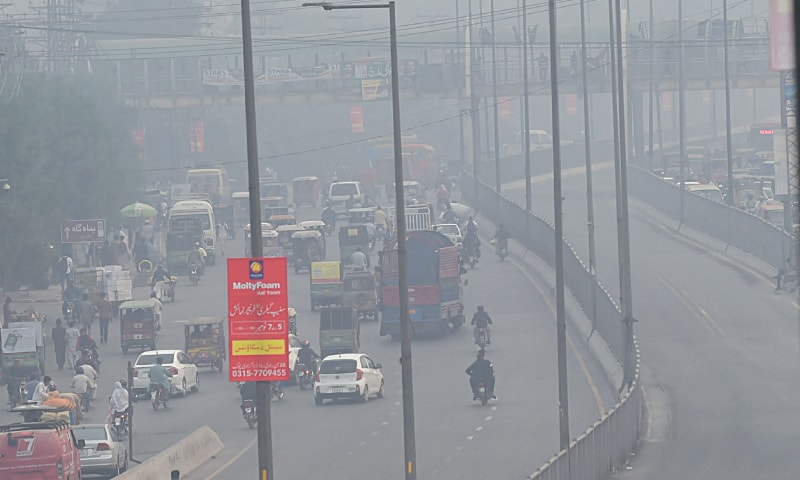Lahore still retains the position of the most polluted city in the world with its AQI level as high as 500 in some areas in recent days. The provincial administration has enforced a smart lockdown in 10 districts of Punjab including Lahore, Sargodha, Faisalabad and others. All public and private educational institutions will remain closed and online classes will be held. Meanwhile, a schedule has been issued for businesses, markets and restaurants for their operation hours on different days of the week. The Punjab government has decided to provide electric bikes to 10,000 students on subsidy. The Naqvi government also mulls over the prospect of pouring artificial rain and installing smog towers to combat pollution.
Air pollution and smog are environmental issues caused by the release of pollutants into the atmosphere. Certain harmful substances such as particulates of matter, nitrogen oxides, sulfur dioxide, carbon monoxide, and volatile organic compounds are added to the fresh air due to human activity and cause adverse effects on human health, ecosystems, and the environment. Smog, on the other hand, is a type of air pollution that is characterized by a mixture of smoke and fog. It often occurs in urban areas with high levels of vehicle emissions and industrial activity. Historically, multiple South Asia countries such as China, India, Bangladesh, and Pakistan are currently at the top of the list of most smog-hit nations. Similarly, Lahore, New Delhi, Hyderabad, and Dhaka are the most polluted cities in the world.
Both air pollution and smog can lead to a range of health problems, including respiratory issues, cardiovascular diseases, and even premature death. They also have detrimental effects on the environment, contributing to climate change, damaging vegetation, and harming wildlife.
There are multiple short and long-term measures to tackle air pollution and smog which includes parliamentary legislation, administrative measures and industrial regulatory policies that could curb rising pollution permanently, through the use of clean energy technologies, reducing emissions from vehicles and industries, and improving air quality standards and regulations. While short-term or instant measures include shutting down schools, and businesses, imposition of smart lockdown, use of artificial rain and water canons, and closure of traffic and trains.
Unfortunately, the Pakistani rulers often forget the public issues once resolved until they reappear next time. So, the formulation of long-term policies, their implementation and monitoring is a time-consuming and lengthy procedure for which they usually lack spare time and extra labour. There is a dire need for stringent measures to be implemented to curb industrial and transport smoke, along with the adoption of specific methods for agricultural and industrial wastes to reduce smoke/ pollution levels in the air which leads to the rise of smog that practically halted the wheel of life and traffic.
Historically, the issue of smog is gradually worsening and expanding from Lahore and Karachi to other mega cities in the country and there is a need for a public-private partnership and core cooperation from the masses, as well as the businesses. Public awareness and cooperation are of utmost importance in dealing with this issue along with mobilizing government machinery to strictly implement relevant protocols, SOPs and regulations. So, this grave issue could be dealt with permanently as soon as possible.







